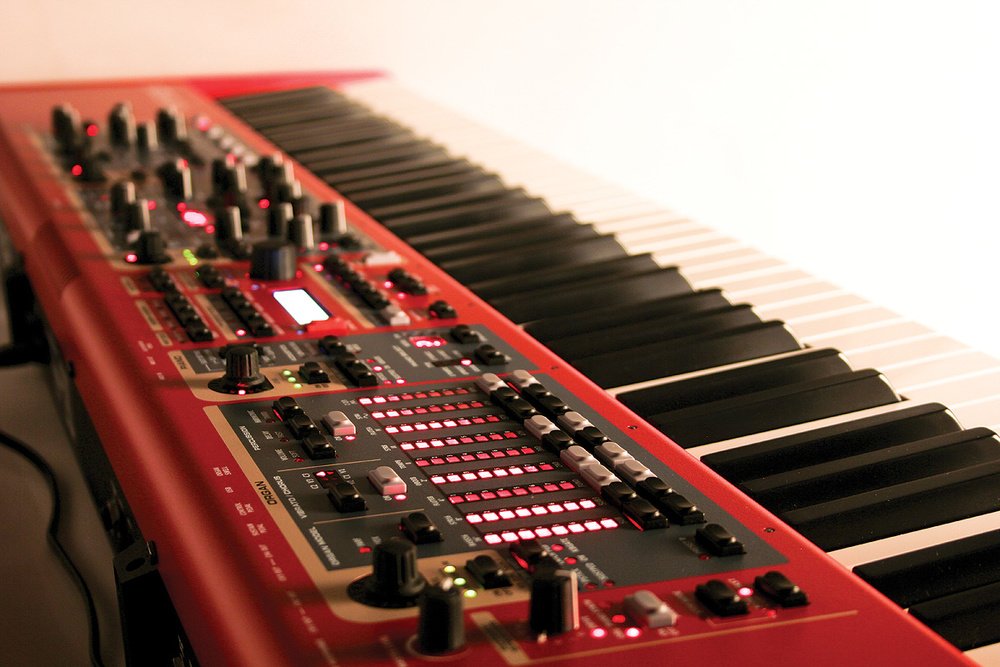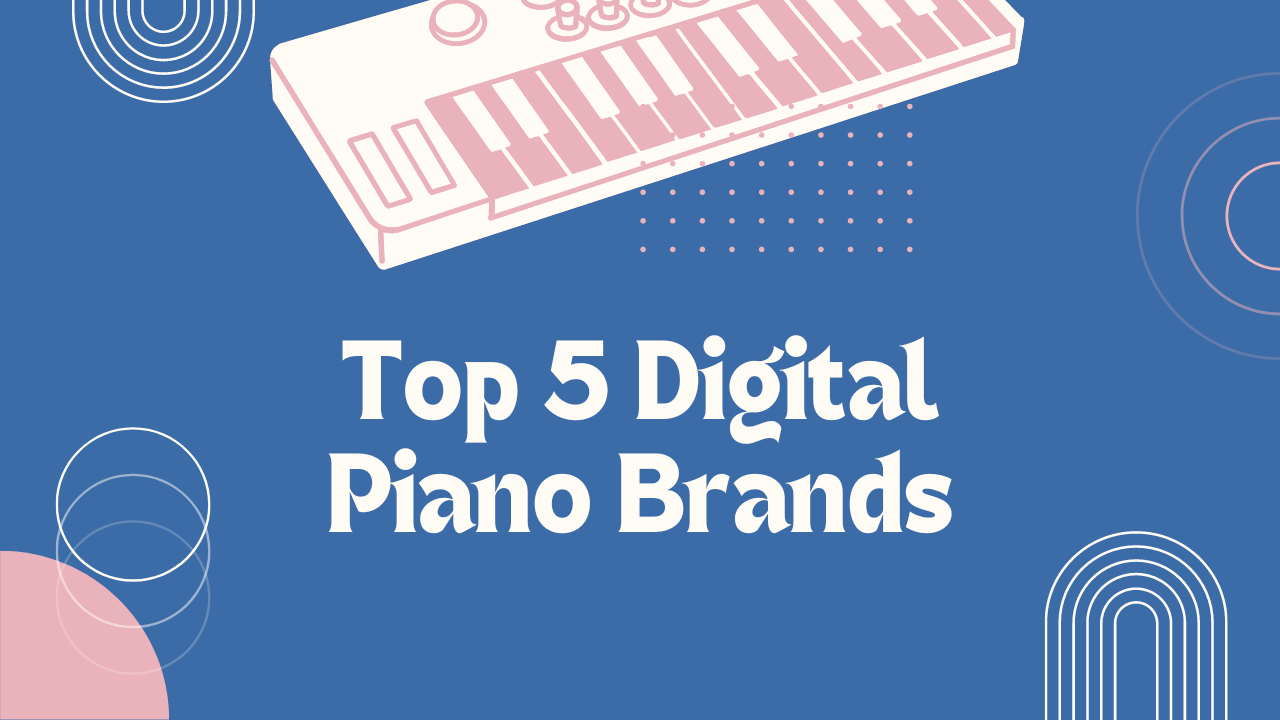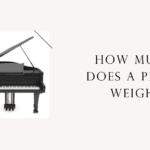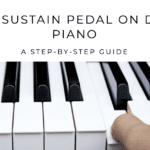When it comes to purchasing a digital piano, the sheer number of options available can be overwhelming. To make your decision a little easier, we’ve compiled a list of the top 5 digital piano brands that you should know about. These brands include Yamaha, Casio, Roland, Korg, and Nord. Each brand offers a unique set of features and technologies that cater to different skill levels and preferences. So, without further ado, let’s dive into the world of digital pianos.
5 Best Digital Piano Brands
1. Yamaha: Realistic Piano Playing Experience
Yamaha digital pianos are electronic musical instruments that offer a realistic piano playing experience. They are known for their exceptional sound quality and natural touch. Yamaha’s cutting-edge technology, such as the Pure CF Sound Engine and the Graded Hammer Standard (GHS) action, provides a dynamic and expressive playing experience.

Yamaha offers a range of digital pianos, from entry-level models like the P-Series to professional stage pianos like the CP Series. Some of their popular models include the P-45, P-125, and the Clavinova CLP series. With a variety of sizes, styles, and price points, Yamaha caters to pianists of all skill levels.
2. Casio: Versatile Features for Every Musician
Casio digital pianos also offer a range of features, including built-in speakers, headphone jacks, and different sound modes, such as electric piano, organ, and strings. Their digital pianos are known for being user-friendly and affordable, making them perfect for beginners and intermediate players.

Casio’s Privia series is highly popular among musicians, featuring models like the PX-160, PX-770, and PX-870. These pianos use Casio’s proprietary AiR Sound Source technology, which delivers rich and detailed sound quality. Casio’s Celviano series, on the other hand, focuses on providing a more traditional piano experience with elegant cabinet designs.
3. Roland: Advanced Technologies for Enhanced Performance
Roland digital pianos are electronic musical instruments that offer a wide range of features and advanced technologies. The brand is known for its innovative SuperNATURAL sound engine, which provides a rich and immersive sound experience, as well as its PHA-4 keyboard with escapement and Ivory Feel keys that closely replicate the touch of an acoustic piano.

Some popular Roland digital piano models include the FP-30, FP-60, and the flagship LX series. Roland also offers stage pianos like the RD-2000, which is perfect for professional musicians and live performances. With their cutting-edge technology and performance-oriented designs, Roland digital pianos are favored by many advanced and professional players.
4. Korg: Feature-Rich Instruments for Creative Musicians
Korg digital pianos also offer a variety of features, such as built-in speakers, different sound modes, and MIDI connectivity, as well as advanced effects and recording capabilities. Korg’s digital pianos are known for their sleek design and exceptional sound quality, making them perfect for musicians who are looking for a creative and versatile instrument to explore various genres and styles.

Some popular Korg digital piano models include the B1, B2, and the flagship Grandstage series. Korg also offers the SV-2 stage piano, which is designed for live performances and studio work. With their innovative features, Korg digital pianos are ideal for musicians who want an instrument that can grow with their skills and creativity.
5. Nord: Advanced Features and High-Quality Sound
Nord digital pianos are electronic musical instruments that are known for their advanced features and high-quality sound. Nord is renowned for its attention to detail, providing pianists with a truly authentic playing experience. The brand’s pianos utilize their proprietary Nord Piano Library, which offers an extensive collection of sampled sounds from various acoustic and electric pianos.

The Nord Stage series is particularly popular among professional musicians due to its excellent sound quality, versatility, and stage-ready design. Some notable models in the Nord Stage lineup include the Nord Stage 3 and Nord Piano 4. With their exceptional performance and unique red design, Nord digital pianos are perfect for musicians who want a top-of-the-line instrument with a distinct look.
Conclusion
Choosing the right digital piano can be a daunting task, but by considering these top 5 brands, you’ll be well on your way to finding the perfect instrument for your needs. Whether you’re a beginner looking for an affordable and user-friendly option, like a Casio piano, or an advanced player seeking cutting-edge technology and performance capabilities, like a Roland or Nord Stage piano, there’s a digital piano out there for you.
Don’t forget to visit our DigitalKeyboardPiano for more information, reviews, and tips on digital pianos. By doing your research and understanding the unique features offered by brands like Yamaha, Casio, Roland, Korg, and Nord Stage, you’ll be able to make an informed decision and invest in a digital piano that will bring joy and music to your life for years to come.
Frequently Asked Questions
1. Which digital piano brand is best for beginners?
Yamaha and Casio are often recommended for beginners due to their user-friendly features, affordability, and wide range of entry-level models. Both brands offer digital pianos that provide a realistic playing experience and quality sound, allowing new players to develop proper technique and enjoy playing music.
2. Are more expensive digital pianos always better?
While higher-priced digital pianos generally come with more features and better sound quality, it doesn’t necessarily mean they are the best choice for everyone. Your choice should depend on your skill level, budget, and personal preferences. Many mid-range digital pianos offer a great balance between price and performance, making them suitable for most players.
3. What should I look for in a digital piano?
Some important factors to consider when choosing a digital piano include:
- Key action and touch sensitivity: The digital piano should have a realistic key action that mimics the feel of an acoustic piano.
- Sound quality: The piano should produce a rich, dynamic, and expressive sound.
- Polyphony: Higher polyphony allows for more complex and nuanced playing.
- Additional features: Depending on your needs, consider features like built-in speakers, headphone jacks, MIDI connectivity, and various sound modes.
4. How important is the number of keys on a digital piano?
A full-sized digital piano typically has 88 keys, just like an acoustic piano. However, digital pianos with fewer keys (such as 61 or 76 keys) are also available. While an 88-key digital piano is ideal for replicating the full range of an acoustic piano, a smaller keyboard may be more suitable for beginners or those with limited space.
5. Can I learn to play the piano on a digital piano?
Yes, digital pianos are an excellent tool for learning to play the piano. Many digital pianos offer a realistic playing experience, allowing you to develop proper technique and skills. Additionally, digital pianos often have built-in features like metronomes and recording capabilities, which can aid in your practice and learning process.
6. Do digital pianos need maintenance?
One of the advantages of digital pianos is that they generally require less maintenance than acoustic pianos. However, it’s still essential to keep your digital piano clean and dust-free, and occasionally check for loose or broken parts. Regularly updating the firmware, if available, is also recommended to ensure optimal performance.





